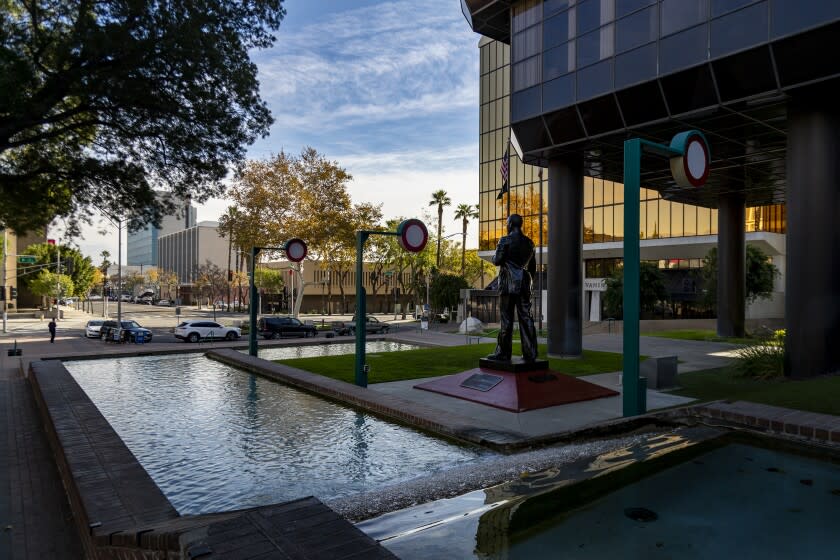State leaders push back against ballot measure that would allow San Bernardino County to explore secession

State leaders are pushing back against a November ballot measure that would allow San Bernardino County to explore secession from California.
State Sen. Connie Leyva (D-Chino), Assembly Majority Leader Eloise Gómez Reyes (D-Grand Terrace) and Assemblymember Freddie Rodriguez (D-Pomona) expressed their "shock" and disappointment in a letter to the board this week after supervisors gave their final vote to place the measure on the ballot. The measure would allow the county to assess ways to get its "fair share of state funding," including potentially seceding from California.
The legislators wrote that they were "shocked with the reasoning behind this initiative, concerned about the cost to taxpayers to essentially ask local officials to do their jobs, and disappointed in the narrative being created regarding our community."
"Your action today to put this question, with unclear outcomes, on the ballot for San Bernardino County voters begs the question of why are we spending public resources to put this before voters in the first place?” they wrote. "Public resources, including staff time being paid for with taxpayer dollars, are being used to not only draft this item but to put it on the ballot in November.”
The lawmakers also said the proposal “disregards the work being done every day to bring more resources to San Bernardino County," emphasizing that together they brought $65 million this year to the Inland Empire.
The Board of Supervisors first green-lit the measure last week in the first step to adding it to the ballot. Tuesday's meeting marked the second and final reading and vote on the matter.
If voters back the measure and if the Board of Supervisors decided to secede from the state, they would still need approval from Congress and the California Legislature to do so.
Sheriff Shannon Dicus voiced support for the measure during Tuesday's meeting, saying that county resources have been stressed because of a 2011 state realignment law aimed at reducing over-populated state prisons by shuttling them back to county jails.
"In realignment for state prisons, this county has spent approximately $40 million just trying to build the infrastructure and take on what was a state responsibility that was pushed down on us locally," he said.
DeJonaé Shaw, former candidate for county supervisor, spoke out against the ballot measure during the meeting, emphasizing the need for the county to prioritize funding for addressing homelessness and the ongoing mental health crisis in the state.
"We can dress up seceding from the state by saying we will do a study to see if we're getting our fair share," she said. "With respect, we do not need to spend one red cent of the taxpayer's hard-earned dollars to obtain information leaders should already be doing and information that's available for free to each and every one of us for free if we just ask."
Board Chairman Curt Hagman called the possibility of seceding from California and creating or joining a neighboring state a "distant last resort," while emphasizing the need for a study to "allow the county to glean data that will help us develop more effective strategies for securing the appropriate return on our tax dollars."
"This possible option would be very difficult to achieve, and all five supervisors truly love calling California our home," he said in the statement. "However, none of us are willing to stop short of doing everything we can to ensure that the dollars we send to the state are put to work addressing our most pressing needs, such as increasing public safety, eliminating homelessness, spurring job creation and economic development, and providing quality roads and other infrastructure."
This story originally appeared in Los Angeles Times.

